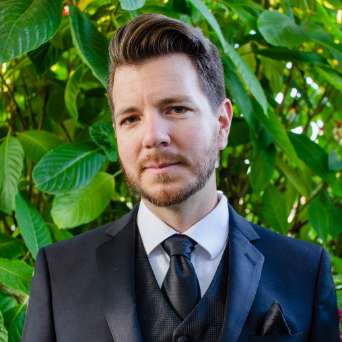Verdi’s opera of forbidden love set against a backdrop of historic political intrigue makes for great theater. Furthermore, it highlights Verdi’s unparalleled ability to musically communicate the struggles between people. In some ways, the Met's HD series gives viewers better than front row seat for world class opera and, although this production’s anachronisms and minimalist sets can occasionally be dispiriting, overall it is an artistic triumph. Nicholas Hytner does such a fine job of drawing the audience into the struggles and passions of the characters, that it is almost as if they were designed for the cameras in the first place.
Crucial to the plot is the inclusion of the Fontainebleau scene. In it, Mr. Hytner focuses on the initial meeting of the fated lovers and on their youthful infatuation. Led with a lilting hand by maestro Yannick Nézet-Séguin, this scene is a welcome dramatic catalyst for the rest of the opera. The larger-than-life “auto-da-fé” scene is claustrophobic, perhaps on purpose. Mr. Hytner’s focus on religious zeal is penetrating and the grandness of this opera is downplayed so as not to distract from the very real world these characters inhabit. Carlo’s world is a terrifying one – one in which he is increasingly walled off from everyone else. His solitude in his suffering is a primary focus, but this is extended to all the characters in their scenes. The production excels in maintaining this personal focus, thanks to an extremely capable, often superb, cast.
Bass Ferruccio Furlanetto has made a significant career with the role of Philip in a prominent place in his repertoire. As the conflicted monarch, he offers a powerful performance, singing with a gravitas to match his persona. But there is a depth to his portrayal that makes for a sympathetic character. While threatening in his confrontation with Rodrigo, he is conversely devastating in his Act IV monologue. It is a masterful performance.
He is matched, almost ideally, by an impassioned Roberto Alagna who sings the title role with abandonment. While not vocally at his freshest, his high notes are thrilling and his commitment to the role makes his obsession with Elizabeth believable and tragic. His gushing lyricism in the Fontainebleau scene is perfectly appropriate and a believable contrast to his spiral into madness. Meanwhile, as his originally intended bride, Marina Poplavskaya sings Elizabeth with a regal selflessness that is affecting. Her vocal color lacks the steely core of a true “Verdi soprano” but it is a unique and beautiful sound with effortless high notes. Her “Tu che le vanità” is moving and sung with exquisite control.
Anna Smirnova as Princess Eboli is a formidable rival, both vocally and dramatically. She labors with her first aria, but makes up for it in the ensemble scenes and her “O don fatale” is sung with an exhilarating abandon. Baritone Simon Keenlyside sings with an attractive, lyric voice. After initially appearing inconsistent vocally, his authority builds throughout the opera. The demise of his altruistic character is gripping and tragic, while Eric Halfvarson’s Grand Inquisitor is ornery and sung formidably.
Yannick Nézet-Ségun certainly leads a taut performance. It refrains from overt melodrama, but flows from lyrical effusiveness to terrorizing palpitations quickly and naturally, and the Met Orchestra and Chorus respond with impressive technical ability. With sparse sets and occasionally unattractive costumes, this production may have some audience members pining for a more ornate take on Verdi's masterpiece. However, the potent portrayals of Verdi's embattled characters are really amplified by the dark world that Mr. Hytner creates. Outstanding singing and powerful performances make this a consuming, tragic Don Carlo that pays tribute to Verdi’s incomparable genius.


